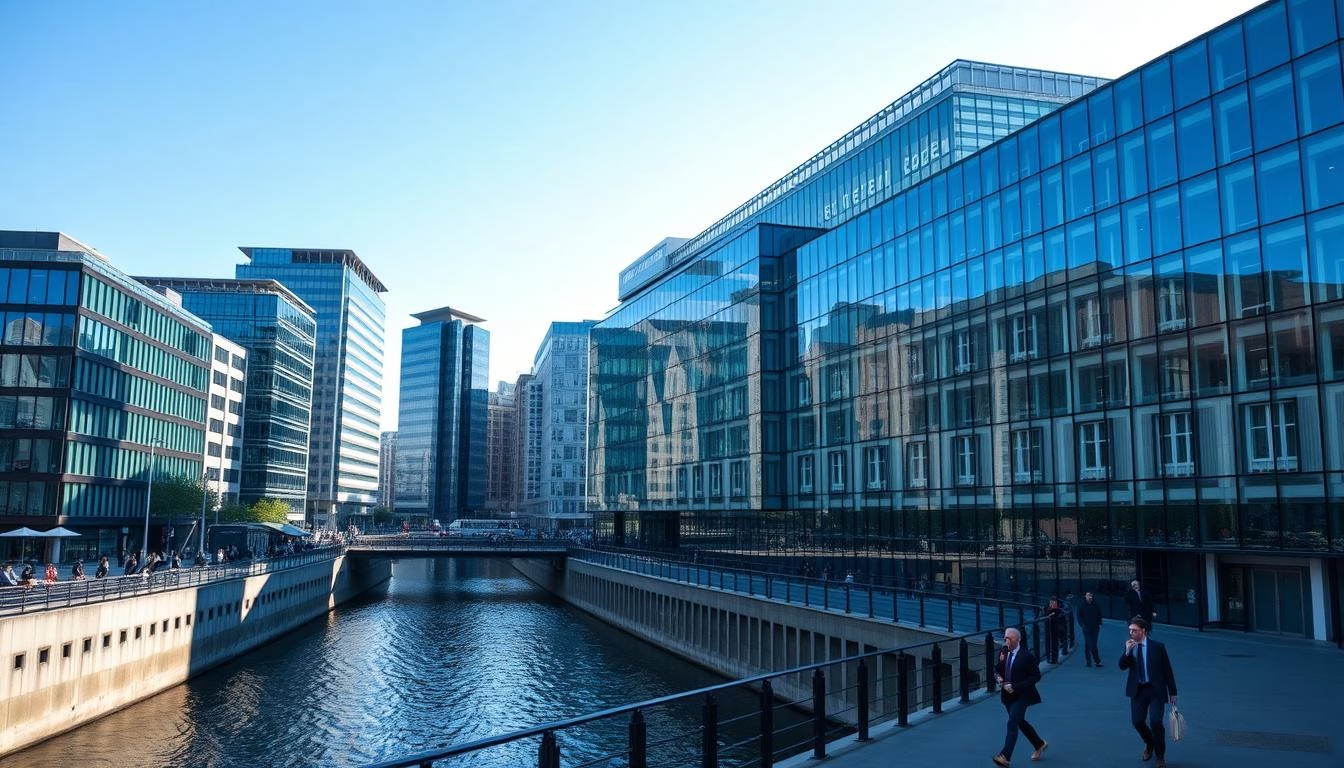Ireland has emerged as one of Europe’s most attractive destinations for business expansion, offering a unique combination of favorable tax policies, skilled workforce, and strategic location as an English-speaking gateway to European markets. With its pro-business environment and robust economic growth, Ireland presents compelling opportunities for companies seeking international expansion.
This comprehensive guide will walk you through the essential steps, requirements, and considerations for successfully establishing and growing your business in Ireland. Whether you’re a tech startup, manufacturing enterprise, or service provider, you’ll find actionable insights to navigate the Irish business landscape effectively.
Ireland’s Business Environment: Why Choose the Emerald Isle?
Understanding Ireland’s economic landscape is crucial before making any expansion decisions. The country offers several compelling advantages that have attracted multinational corporations and startups alike.
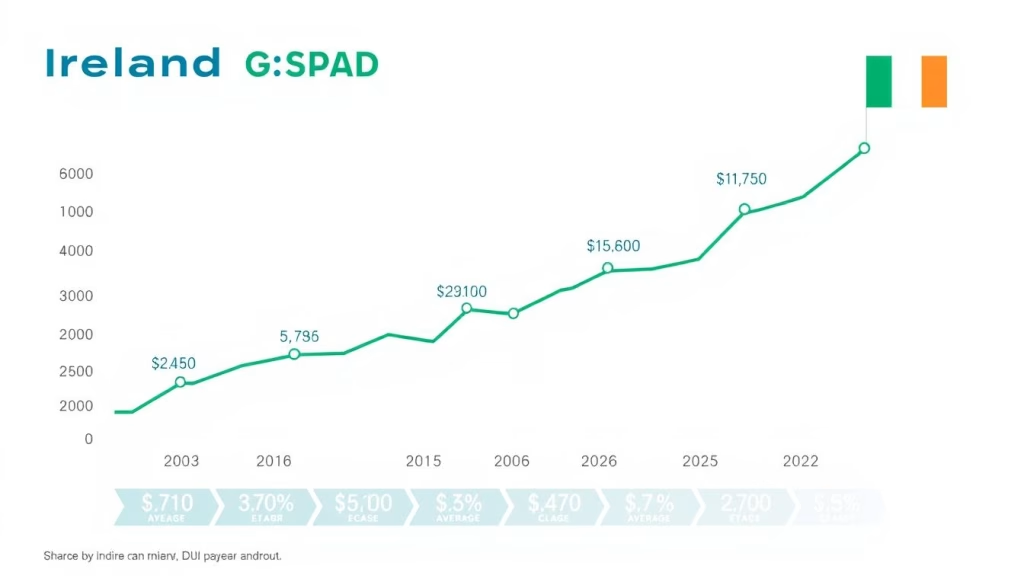
Economic Strength and Stability
Ireland’s economy has demonstrated remarkable resilience and growth over the past decade. With a GDP growth rate consistently outpacing the EU average, the country has established itself as one of Europe’s most dynamic economies. In 2022, Ireland’s GDP grew by 12%, compared to the EU average of 3.3%, making it the fastest-growing economy in the eurozone.
Foreign Direct Investment (FDI) Trends
Ireland has successfully positioned itself as a leading destination for foreign direct investment. According to IDA Ireland, the country attracted over €10.9 billion in new FDI projects in 2022 alone, with significant investments in technology, pharmaceuticals, and financial services. This strong FDI performance reflects international confidence in Ireland’s business environment.
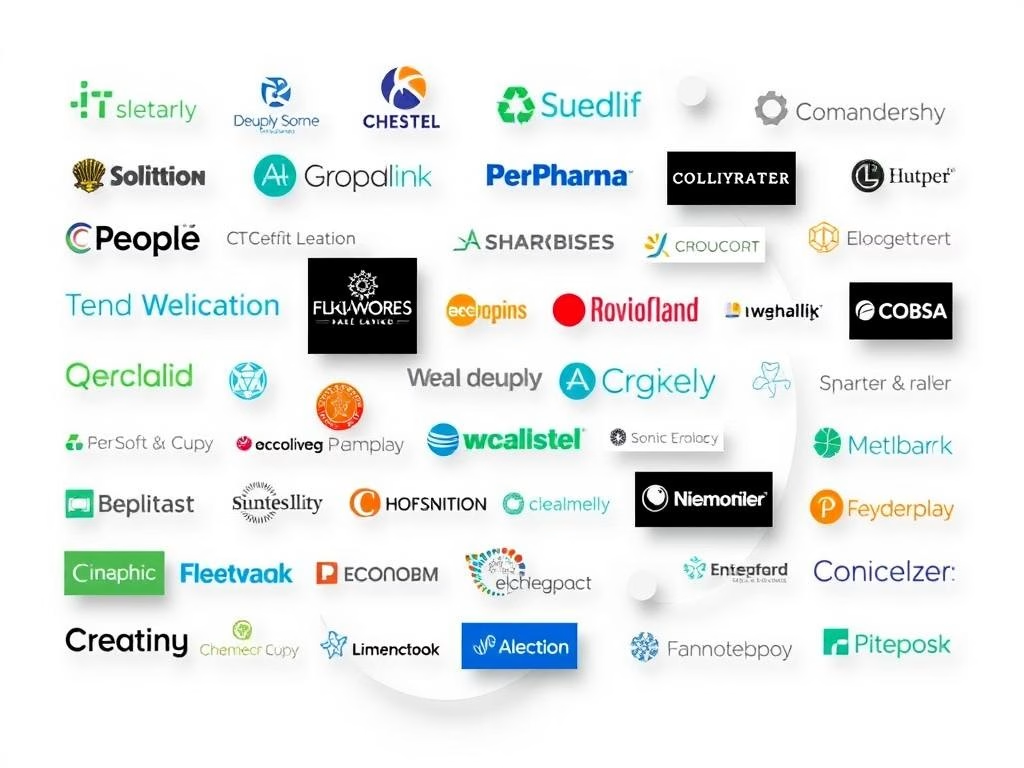
Competitive Tax Advantages
One of Ireland’s most attractive features for business expansion is its competitive corporate tax rate of 12.5%, significantly lower than many other European countries. This favorable tax environment extends beyond the headline rate to include various incentives for research and development, intellectual property, and certain industries.
| Country | Corporate Tax Rate | R&D Tax Credit | IP Tax Benefits |
| Ireland | 12.5% | 25% | 6.25% (Knowledge Development Box) |
| France | 25% | 30% | 10% |
| Germany | 30% | 25% | Limited |
| United Kingdom | 25% | 13% | 10% (Patent Box) |
| Netherlands | 25.8% | 32% | 9% (Innovation Box) |
Strategic Location and Market Access
As the only English-speaking country in the eurozone following Brexit, Ireland offers a unique advantage for businesses seeking access to the EU market. Companies can leverage Ireland’s position to serve as a bridge between North America and Europe, benefiting from the country’s membership in the EU single market while operating in an English-speaking environment.
Ready to explore your Irish expansion options?
Download our free guide to Ireland’s business environment and discover if it’s the right fit for your company’s international growth strategy.
Key Industries for Foreign Investment in Ireland
Ireland has developed specialized expertise in several high-growth sectors, making it particularly attractive for businesses in these industries. Understanding the landscape of these key sectors can help you position your expansion for maximum success.

Technology and Digital Economy
Ireland has earned the nickname “Silicon Valley of Europe” by attracting global tech giants and nurturing a vibrant startup ecosystem. The country hosts European headquarters for companies like Google, Facebook, Apple, and Microsoft. Key factors driving tech investment include:
- Access to skilled IT professionals and computer science graduates
- Strong digital infrastructure with high-speed connectivity
- Supportive government policies for digital businesses
- Established tech clusters in Dublin and Cork
- Attractive IP protection and tax treatment for software development

Pharmaceuticals and Life Sciences
Ireland has become a global hub for pharmaceutical manufacturing and life sciences research. The sector employs over 50,000 people and accounts for more than 50% of Ireland’s exports. Nine of the world’s top ten pharmaceutical companies have significant operations in Ireland, including Pfizer, Johnson & Johnson, and Novartis.
- World-class research facilities and university partnerships
- Established supply chain for pharmaceutical ingredients and manufacturing
- Highly skilled workforce with specialized expertise
- Favorable regulatory environment aligned with EU standards
- Strong government support through agencies like IDA Ireland

Renewable Energy and Green Technology
Ireland has set ambitious climate targets and is rapidly developing its renewable energy sector. The government’s Climate Action Plan aims for 80% renewable electricity by 2030, creating significant opportunities for businesses in green technology and sustainable solutions.
- Abundant wind and ocean energy resources
- Growing market for energy efficiency solutions
- Government incentives for renewable energy projects
- Emerging hydrogen economy initiatives
- Strong research focus on sustainable technologies
Financial Services and FinTech
Post-Brexit, Ireland has strengthened its position as a financial services hub, with many institutions relocating or expanding their Irish operations. The country’s established financial services ecosystem, combined with its tech expertise, has also fostered a thriving FinTech sector.
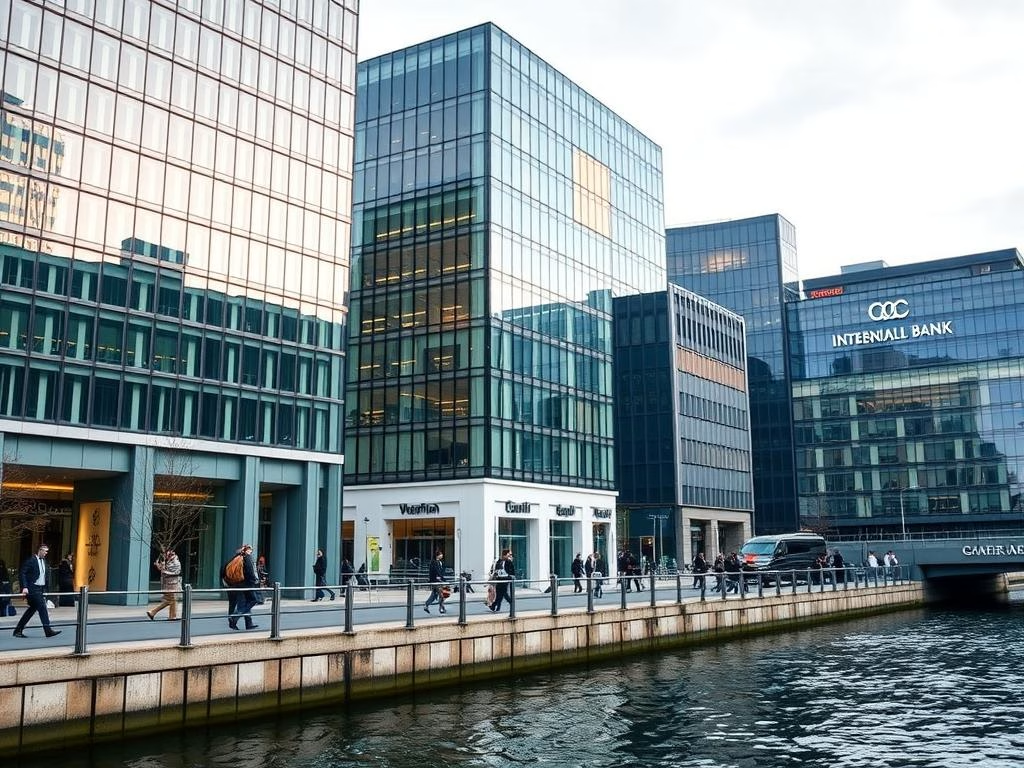
Discover industry-specific opportunities in Ireland
Our sector specialists can provide tailored insights for your business expansion. Schedule a consultation to discuss your industry and specific needs.
Legal Requirements for Company Registration and Compliance
Establishing a legal entity in Ireland involves several key steps and ongoing compliance obligations. Understanding these requirements is essential for a smooth expansion process.
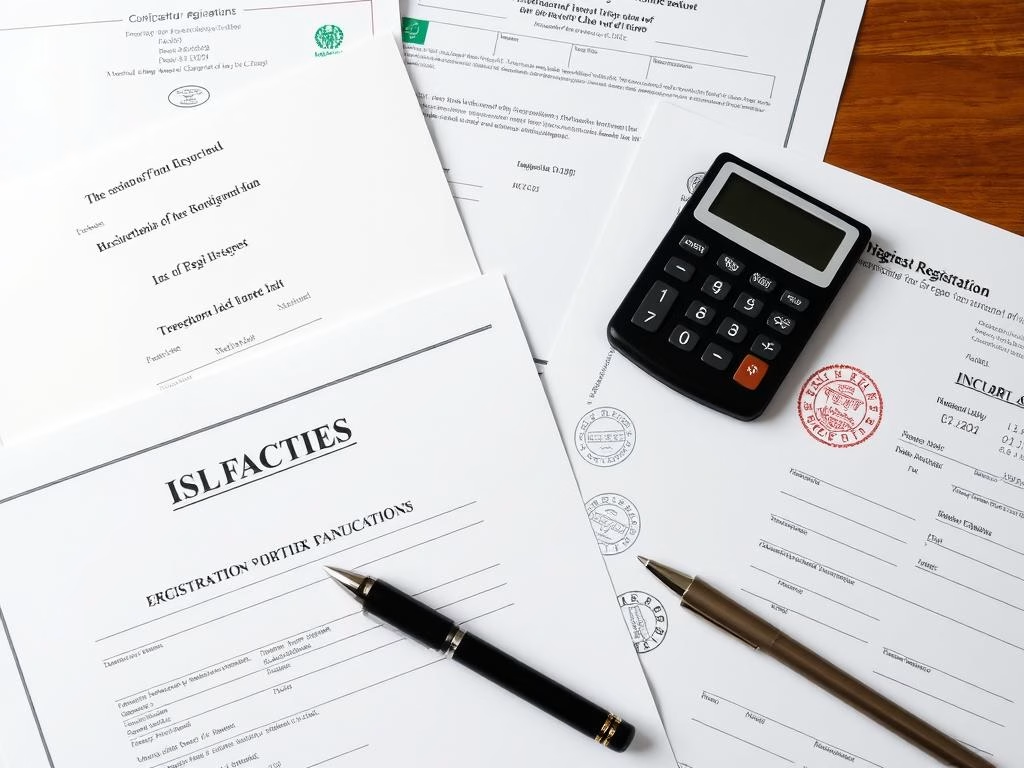
Business Structure Options
When expanding to Ireland, you’ll need to choose the most appropriate legal structure for your business. The most common options include:
Private Limited Company (LTD)
The most popular structure for foreign businesses expanding to Ireland. Features include:
- Limited liability protection for shareholders
- Single-director structure permitted
- No minimum capital requirements
- Simplified constitution document
Branch of Foreign Company
An alternative to incorporating a separate Irish entity. Key considerations:
- Not a separate legal entity from parent company
- Parent company remains liable for branch activities
- Simpler setup but less separation from parent
- Different disclosure requirements
Registration Process
The company registration process in Ireland typically involves the following steps:
- Choose and reserve a company name with the Companies Registration Office (CRO)
- Prepare company constitution documents
- Appoint directors and company secretary (at least one director must be an EEA resident)
- Identify shareholders and determine share structure
- Register with the CRO by filing Form A1
- Obtain a company seal and statutory registers
- Register for taxes with the Revenue Commissioners
Important Note: Since June 2023, all directors of Irish companies must provide their Personal Public Service Number (PPSN) or Individual Identification Number (IIN) when filing company documents. Non-resident directors need to verify their identity by filing a Form VIF Declaration to obtain an IIN.
Tax Registration Requirements
After incorporating your company, you’ll need to register for various taxes with the Irish Revenue Commissioners:
- Corporation Tax – All companies must register within 30 days of commencing business
- Value Added Tax (VAT) – Required if turnover exceeds certain thresholds (€37,500 for services or €75,000 for goods)
- Employer’s PAYE/PRSI – Required if you have employees in Ireland
- Relevant Contracts Tax (RCT) – For businesses in the construction industry
Ongoing Compliance Obligations
Operating a business in Ireland comes with several ongoing compliance requirements:
- Annual return filing with the CRO
- Financial statements preparation and submission
- Corporation tax returns and payments
- VAT returns (typically bi-monthly)
- Payroll tax compliance for employees
- Maintaining statutory registers and minute books
- Beneficial ownership registration with the Central Register of Beneficial Ownership (RBO)
Need help with Irish company formation?
Our legal experts can guide you through the registration process and ensure full compliance with all Irish regulations. Get started with a personalized consultation.
Cultural Considerations for Business Success in Ireland
Understanding Irish business culture is essential for building successful relationships and operating effectively in the local market. While Ireland is a modern, globalized economy, certain cultural nuances can significantly impact business interactions.

Communication Style
Irish communication tends to be informal and relationship-focused, with an emphasis on storytelling and humor. Key aspects include:
- Preference for building rapport before discussing business matters
- Appreciation for wit and self-deprecating humor
- Indirect communication style that may avoid blunt criticism
- Value placed on eloquence and articulate expression
- Tendency to use understatement rather than overstatement
Relationship Building
Business relationships in Ireland are built on trust and personal connections. Investing time in relationship development can yield significant long-term benefits:
- Face-to-face meetings are highly valued despite technological alternatives
- Social interactions outside the office (often in pubs) are important networking opportunities
- Small talk about sports (especially Gaelic games, rugby, and soccer), weather, and current events is expected
- Personal introductions and referrals carry significant weight
- Patience in developing relationships before expecting major decisions
“In Ireland, business is personal. The lines between professional and social relationships are often blurred, and some of the most important business discussions happen over a cup of tea or a pint of Guinness.”
Decision-Making Process
Understanding how decisions are made in Irish organizations can help you navigate negotiations more effectively:
- Consensus-building approach that values input from various stakeholders
- Less hierarchical than many European counterparts
- Decisions may take time as relationships and trust are established
- Verbal agreements are important but should be followed up with written confirmation
- Flexibility and pragmatism in problem-solving
Business Etiquette
Following proper business etiquette will help you make a positive impression:
Meeting Practices
- Punctuality is expected but not rigidly enforced
- Handshakes are the standard greeting
- Business cards are exchanged without ceremony
- First names are commonly used after initial introductions
Business Attire
- Generally conservative but increasingly casual
- Traditional business attire for initial meetings
- Industry-dependent dress codes
- Smart casual acceptable in many tech companies

Master the nuances of Irish business culture
Our cultural briefing sessions can help your team navigate Irish business practices effectively and build stronger relationships with local partners and clients.
Success Stories: Multinational Companies Thriving in Ireland
Examining how other companies have successfully expanded to Ireland can provide valuable insights and inspiration for your own expansion strategy. Here are three case studies of multinational companies that have established thriving operations in Ireland.
Case Study 1: Salesforce
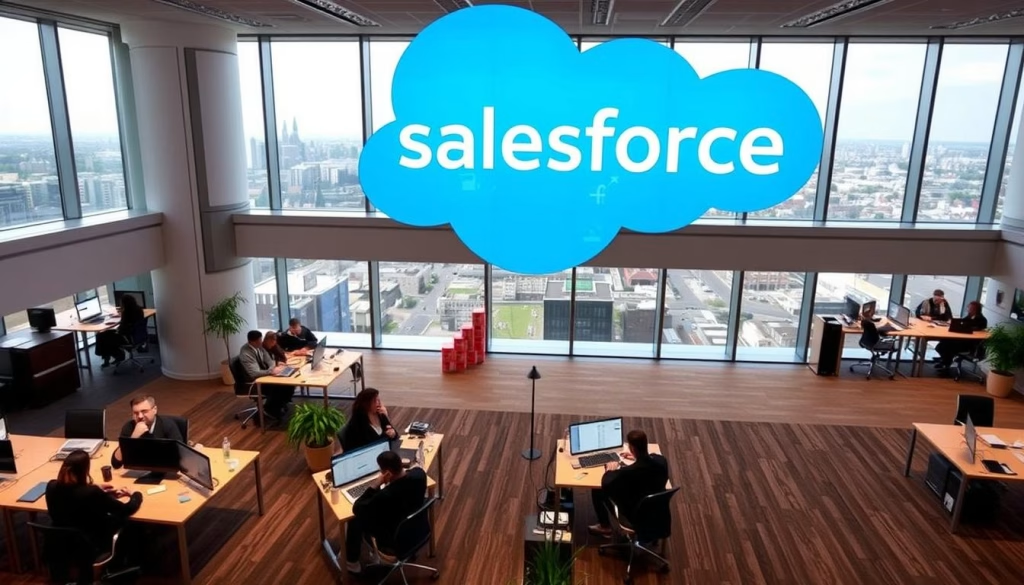
Background
Salesforce, the global CRM leader, established its European headquarters in Dublin in 2000. What began as a small sales office has grown into one of the company’s largest global hubs, employing over 3,000 people across multiple functions.
Expansion Strategy
Salesforce adopted a phased approach to its Irish expansion:
- Initial entry with a small sales team focused on European markets
- Gradual expansion of functions to include customer support and technical operations
- Significant investment in a new urban campus at Spencer Dock, Dublin
- Development of strategic partnerships with Irish universities for talent pipeline
Key Success Factors
- Leveraging Ireland’s multilingual talent pool to serve diverse European markets
- Building strong relationships with IDA Ireland for ongoing support
- Embracing local corporate social responsibility initiatives
- Creating a distinctive workplace culture that blends global values with local elements
Results
Salesforce’s Irish operation has become a cornerstone of its global success, serving as the company’s international growth engine. The Dublin office manages relationships with major European clients and has become a center of excellence for cloud computing innovation.
Case Study 2: Pfizer
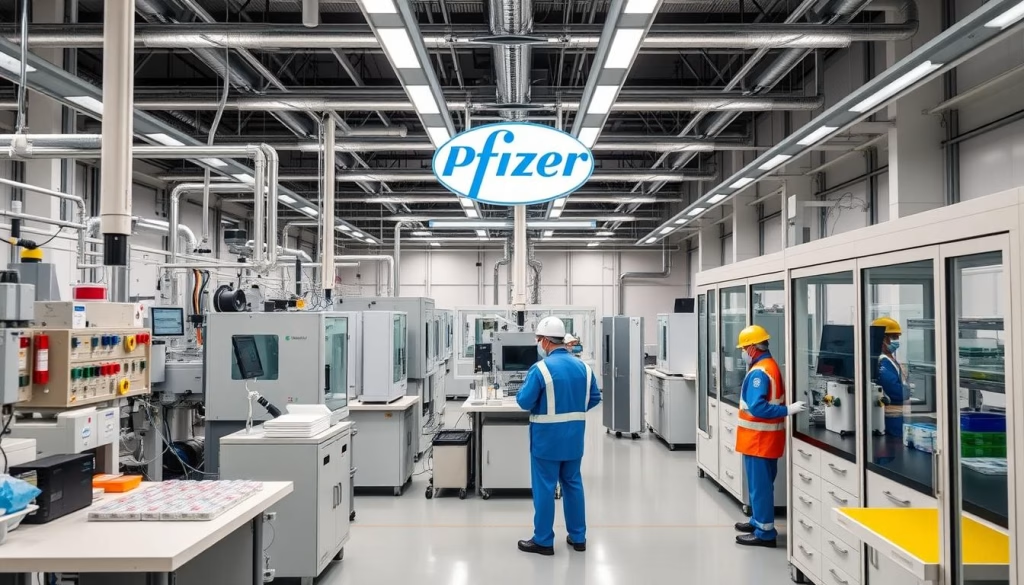
Background
Pfizer, one of the world’s premier biopharmaceutical companies, has maintained a presence in Ireland since 1969. The company now operates six sites across the country, employing approximately 4,000 people in manufacturing, shared services, R&D, treasury, and commercial operations.
Expansion Strategy
Pfizer’s long-term investment in Ireland demonstrates a strategic approach to expansion:
- Initial entry through manufacturing facility acquisition
- Continuous reinvestment in facilities and technology upgrades
- Diversification of operations beyond manufacturing to include higher-value activities
- Strategic location of different operations across multiple Irish sites
Key Success Factors
- Capitalizing on Ireland’s strong pharmaceutical manufacturing ecosystem
- Leveraging R&D tax credits and IP-related tax benefits
- Building collaborative relationships with Irish universities and research institutions
- Developing specialized expertise in complex manufacturing processes
Results
Ireland has become a critical node in Pfizer’s global supply chain, producing some of the company’s most important medicines. The company’s Grange Castle facility in Dublin is one of its largest biopharmaceutical sites globally and has received over €1 billion in investment.
Case Study 3: Stripe

Background
Founded by Irish brothers Patrick and John Collison, Stripe established its European headquarters in Dublin in 2018 despite being a U.S.-based company. This “reverse expansion” demonstrates Ireland’s appeal even to companies with Irish origins that initially built their business elsewhere.
Expansion Strategy
Stripe’s approach to its Irish expansion focused on building engineering capabilities:
- Establishing Dublin as an engineering hub rather than just a sales office
- Recruiting top technical talent from across Europe
- Creating a seamless integration between U.S. and Irish engineering teams
- Leveraging Ireland’s position to navigate European regulatory requirements
Key Success Factors
- Tapping into Ireland’s growing pool of software engineering talent
- Utilizing the founders’ local knowledge and networks
- Building a distinctive company culture that attracts top talent
- Leveraging Ireland’s favorable regulatory environment for fintech
Results
Stripe’s Dublin office has grown to hundreds of employees and serves as the company’s European regulatory hub and engineering center. The company continues to expand its Irish operations, with plans for further growth in Dublin.
Learn from successful market entries
Our detailed case study collection provides in-depth analysis of how companies in your industry have successfully expanded to Ireland. Gain insights from their strategies and avoid common pitfalls.
Practical Checklist for Market Entry
A successful expansion to Ireland requires careful planning and execution across multiple dimensions. This practical checklist will help you navigate the key areas you need to address when entering the Irish market.

Market Research and Strategy Development
Before committing resources to your Irish expansion, conduct thorough market research to validate your business case:
- Analyze market size and growth potential for your products or services
- Identify key competitors and their market positioning
- Understand customer preferences and purchasing behaviors
- Assess pricing strategies appropriate for the Irish market
- Develop a clear value proposition for Irish customers
- Create a detailed business plan with financial projections
Local Partnerships and Professional Services
Establishing relationships with local partners and service providers is crucial for navigating the Irish business environment:
Essential Partners
- Legal counsel with expertise in Irish corporate law
- Accounting firm familiar with Irish tax regulations
- Banking partner for financial services
- Real estate advisor for office or facility location
- Recruitment agency specializing in your industry
Government Agencies
- IDA Ireland – for foreign direct investment support
- Enterprise Ireland – for business development assistance
- Local Enterprise Offices – for regional support
- Science Foundation Ireland – for research partnerships
- Skillnet Ireland – for workforce development
Talent Acquisition and HR Setup
Accessing Ireland’s skilled workforce requires a strategic approach to recruitment and HR:
- Develop a staffing plan identifying key roles and skills needed
- Understand Irish employment law and contractual requirements
- Establish competitive compensation and benefits packages
- Create an onboarding process for new employees
- Consider relocation support for expatriate employees
- Develop relationships with local universities and technical institutes
- Set up payroll and benefits administration systems

Operational Setup and Logistics
Establishing your physical presence and operational capabilities requires attention to several key areas:
Facilities and Infrastructure
- Office or facility location selection
- Lease negotiation and property setup
- IT infrastructure implementation
- Equipment procurement and installation
- Security and access control systems
Supply Chain and Logistics
- Supplier identification and relationship building
- Distribution network development
- Inventory management systems
- Import/export procedures and documentation
- Customs compliance and tariff management
Marketing and Customer Acquisition
Adapting your marketing approach to the Irish market is essential for customer acquisition:
- Localize marketing materials and messaging for Irish audiences
- Identify appropriate marketing channels and media partners
- Develop relationships with industry associations and networks
- Create an Irish market-specific customer acquisition strategy
- Establish local customer service capabilities
- Build an Irish-focused digital presence (website, social media)

Get your comprehensive market entry checklist
Download our detailed, industry-specific checklist for expanding your business to Ireland. This practical tool includes timelines, resource requirements, and step-by-step guidance.
Funding and Support Programs for Business Expansion
Ireland offers numerous funding opportunities and support programs for businesses expanding into the country. Understanding and accessing these resources can significantly enhance your expansion success.

Government Grants and Incentives
Several government agencies offer financial support for businesses establishing or expanding operations in Ireland:
- IDA Ireland Employment Grants – Financial assistance for job creation, particularly in regions outside Dublin
- Enterprise Ireland Expansion Funding – Support for existing businesses looking to scale their Irish operations
- Research and Development Grants – Funding for innovation activities through Science Foundation Ireland
- Regional Enterprise Development Fund – Support for projects that enhance regional economic development
- Training Grants – Assistance for workforce development and skills enhancement
Tax Incentives and Relief Programs
Beyond Ireland’s competitive corporate tax rate, several targeted incentives can benefit expanding businesses:
- R&D Tax Credit – 25% tax credit on qualifying R&D expenditure
- Knowledge Development Box – 6.25% tax rate on income from qualifying intellectual property
- Special Assignee Relief Programme (SARP) – Income tax relief for key employees relocating to Ireland
- Foreign Earnings Deduction – Tax relief for employees working in certain overseas markets
- Start-up Relief – Corporation tax relief for new companies in their first three years
Business Support Services
Various organizations provide non-financial support to help businesses navigate their Irish expansion:
Advisory Services
- Market entry strategy development
- Regulatory compliance guidance
- Introductions to potential partners and customers
- Site selection assistance
- Recruitment support
Networking Opportunities
- Industry-specific business associations
- Chambers of Commerce
- American Chamber of Commerce in Ireland
- International business networks
- Trade shows and business events
Maximize your funding opportunities
Our funding specialists can identify the grants, incentives, and support programs that match your business profile and expansion plans. Get a personalized funding roadmap today.
Conclusion: Your Path to Successful Irish Expansion
Expanding your business to Ireland offers compelling opportunities for growth, market access, and operational advantages. With its favorable business environment, skilled workforce, and strategic location, Ireland continues to attract companies from around the world seeking a European base.
The key to successful expansion lies in thorough preparation, understanding the local business landscape, and leveraging available resources. By following the step-by-step approach outlined in this guide, you can navigate the complexities of international expansion and position your business for success in Ireland.

Remember that expansion is a journey rather than a destination. Building relationships, understanding cultural nuances, and adapting to the local market are ongoing processes that will continue long after your initial setup. The most successful international businesses in Ireland are those that combine global vision with local engagement.
As you embark on your Irish expansion journey, take advantage of the support ecosystem available to you. From government agencies to professional service providers, industry networks to funding programs, numerous resources exist to help you navigate challenges and maximize opportunities.
Ready to start your Irish expansion journey?
Our team of expansion specialists can guide you through every step of the process, from initial market assessment to operational setup. Schedule a consultation to discuss your specific needs and objectives.

